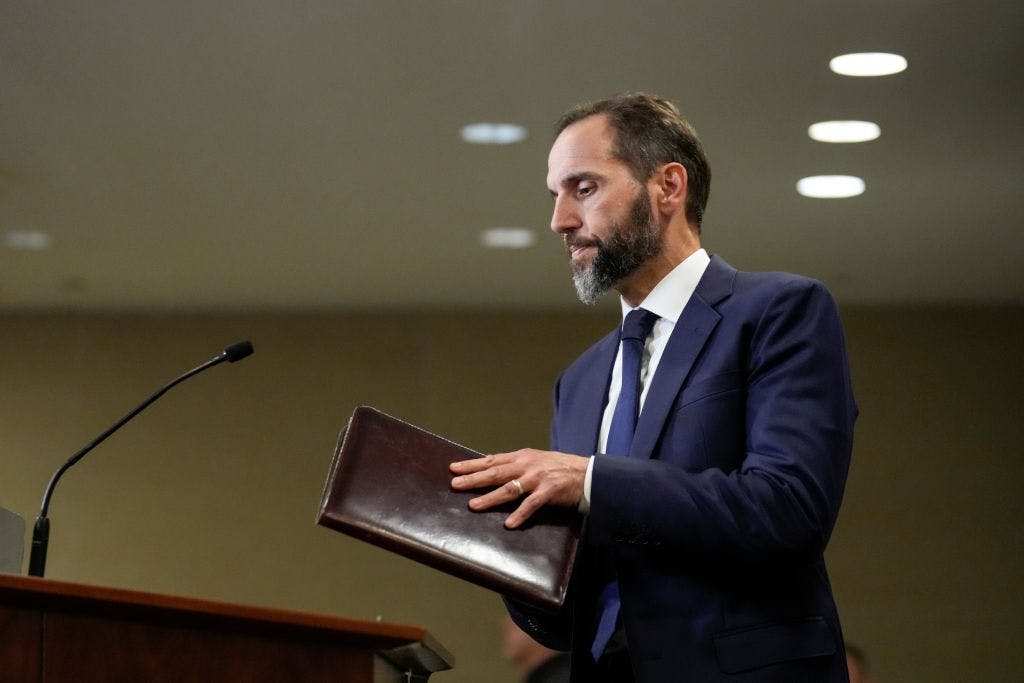Jack Smith’s Effort To Plumb Trump’s Intent on January 6 Could Earn Special Counsel a Rebuke at the Supreme Court
The justices barred the prosecutor from inquiring into the 45th president’s state of mind — but is the lawman listening?

The possibility that Special Counsel Jack Smith ignored a key part of the Supreme Court’s landmark immunity ruling could set the prosecutor up for more heartbreak before the Nine.
President Trump’s response to Mr. Smith’s 165-page immunity brief is due on Thursday. The special counsel asserts that Trump “must stand trial for his private crimes as would any other citizen.” The 45th president will aim to convince Judge Tanya Chutkan that the case is precluded by the justices’ ruling that official presidential acts are presumptively immune. Trump’s team calls Mr. Smith’s work a “false hit job” and a “monstrosity” that is “politically motivated.”
A login link has been sent to
Enter your email to read this article.
Get 2 free articles when you subscribe.

